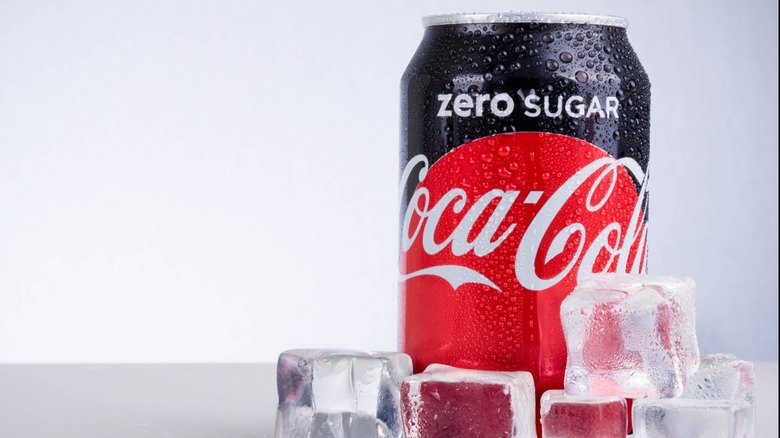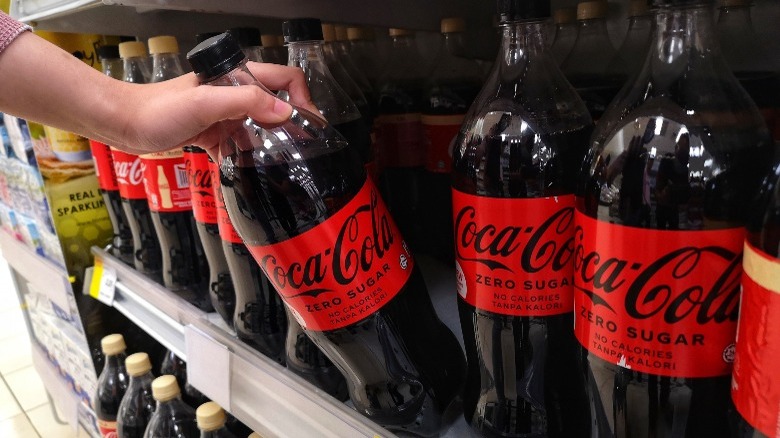Is Coke Zero Actually Good For You?
If you're a fan of sugar-sweetened beverages, you're not alone. According to the Centers for Disease Control and Prevention (CDC), nearly 50% of American adults report that they consume at least one sugary drink on a daily basis. And as far as Coke goes, the popular cola beverage remains the top soft drink brand in the world. Coca-Cola's net operating revenue is close to $39 million and consumption in North America accounts for over one-third of that, per Statista.
The bad news, which should come as no surprise, is that while you may enjoy that flavor and the crisp mouthfeel, Coke has essentially no nutritional value and is loaded with sugar. According to the experts at Verywell Fit, if you drink a 12-ounce serving of Coke, you will also consume 39 grams of sugar. Drinking Coke may not seem like such a sweet idea when you consider that adult men and women should consume a maximum of 50 grams of added sugar per day, according to the Harvard T.H. Chan School of Public Health.
If you want to give up on the sugar, but can't pull yourself away from the Coke taste, is drinking Coke Zero the solution?
Why you should think twice before drinking Coke Zero
Coke Zero was first introduced in 2005 as the Coke taste people loved but with zero calories. Following some market testing and recipe optimizations, The Coca-Cola Company rebranded Coke Zero in 2017 as Coca-Cola Zero Sugar.
According to the experts at Healthline, while the absence of sugar may be appealing to those looking to reduce their daily sugar intake or manage their weight while not having to compromise on the Coke taste they love, consuming Coke Zero still has potential downsides.
First, Coke Zero uses artificial sweeteners, such as aspartame and acesulfame potassium (Ace-K), which still might lead to obesity and an increased risk of certain diseases such as heart disease and osteoporosis, according to some studies. Some studies also suggest that drinking artificially sweetened beverages not only may have no impact on weight loss but may actually be associated with weight gain. However, other studies indicate the opposite, so more research is needed to confirm the benefits and risks. Another potential risk is that because Coke Zero contains phosphoric acid, drinking Coke Zero could also lead to mild teeth erosion, warns Healthline.
While the research is conflicting when it comes to the risks of Coke Zero, it still wouldn't hurt to try low-sugar alternatives like herbal tea or fruit-infused sparkling water. These healthier alternatives may satisfy your craving for sweetness enough that you find you have zero need for Coke Zero after all.


